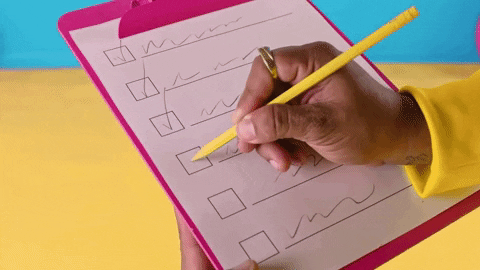From peeking at your classmates’ paper in grade school to using Morse code to communicate with your friend during a test, we’ve gotten clever in finding new ways to cheat through our despair. In the midst of all those papers and nonsense quizzes that drop your grade instead of raising it, students lose their incentive to work towards strengthening their minds and gaining knowledge. Instead, the goal became to ensure an A or at least a passing grade that wouldn’t kill our GPAs. When it comes to college students, getting good grades causes stress beyond comparison, leading us to cheat rather than retain the necessary knowledge for our jobs in the future. Are we to blame for the shameful skill we’ve acquired, or is the education system flawed for pressuring students to memorize information rather than learn?
Why do students really cheat in school?
Higher Standards, More Pressure

In college, our grades seem like the most important thing in the world, leading us to go to immoral lengths to maintain a high GPA. Although in the moment cheating seems like a good idea and worth the risk, the result inevitably feels regretful in the long run. While this habit stays popular among most students, there are some who remain honest for the right reasons.
“I was never much of a cheater in school. While my grades are important to me, I don’t resort to cheating. It’s mostly because of the fact that it’s the wrong thing to do and I don’t see the point in doing something wrong that could potentially get me in trouble. Plus, I don’t mind studying, especially when I know I’m going to need the information in the future,” College of Staten Island junior Sarah Morad said.
Although some students prefer to study, there’s still many of us who continue to cheat during college. Another reason this habit became long term for many comes from the thrill of the risk of cheating. The undeniable satisfaction of successfully finding answers without doing the actual work for it almost outweighs the guilt. It even feels like an act of goodwill to give someone an answer. The truth of the matter? You’re hurting that person, not helping them.
Zoom University and Cheating

Cheating is at an all-time high and students are open about it. It’s almost become a running joke for this generation to be so stressed out, that there’s no other way to complete school work without cheating. With no teachers peering over your shoulder, the urge to cheat becomes more tempting. Combined with the pandemic and other modern-day crises around the world, it’s normal for students to feel too anxious and uneasy to study.
“I think that cheating has become normal. It’s always been an issue, but with the online transition students can cheat effortlessly in some classes. There are many people who think online school is easier, but that’s not the case. It’s not easier in terms of learning, it’s easier in terms of getting higher grades,” St. John’s University junior Lisa Marks* said.
Contrary to popular belief, online learning proves more difficult to retain information than in person. There lacks the feeling of obligation and motivation while being on a Zoom call in your bed. This new form of inattentiveness has caused many students to fall into the blackhole of cheating. All it takes is finding one answer key online and you’re hooked for the semester.
Clouded Judgment and Academic Pressure

The academic pressure in college remains no secret, but does pressure count as an excuse to cheat? Are students the only ones to blame? The education system enforced memorization on students since elementary school, making the learning process more stressful and robotic than educating.
“First and foremost, I would just like to say I have the utmost respect for the hardworking teachers who have struggled during the pandemic. However, from personal experience, I can say that certain teaching methods bring about cheating. Not all students have the same minds, meaning they can’t all learn the same way, causing those who were not catered to their needs to cheat. There’s a stigma around ‘dumb kids’ cheating, when in reality many of those kids did not grasp the concept and are afraid of failure. It’s the same in college,” St. John’s University graduate Jenna Said said.
Students are rewarded for memorizing information rather than gaining a general understanding. To enforce academic integrity, it’s the responsibility of teachers and professors to make the class understandable and passable without having to resort to cheating.
Manage Your Time

An effective yet simple way to avoid cheating as a new habit is excellent time management. Prioritizing your academics, social life and self-care is essential. Make to-do lists to organize your weekly assignments. Keep a clean workspace to refrain from getting overwhelmed and when it comes to class, be as active as possible and make sure you ask questions.
Additionally, set aside time to see your friends and family. Seeing friendly faces can help reduce stress. Self-care is a must, especially for college students staring at a screen for eight hours a day. Ensuring you take time to relax and breathe once in a while helps more than you think.
Students feel obligated to get good grades rather than to learn. We may leave school with A’s, but at what cost? Studying remains one of the hardest and nerve-wracking parts of college but trying to find an easy way out won’t truly benefit you. Cheating allows a temporary solution that creates a long-term problem. Knowledge is the greatest power one can have and cheating robs you of that privilege.
*This name has been changed.



















